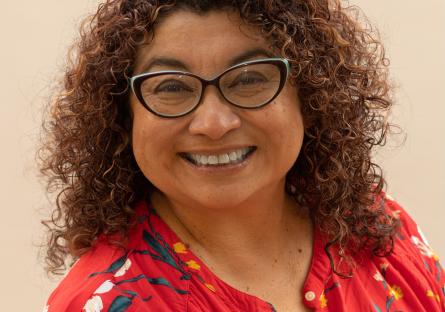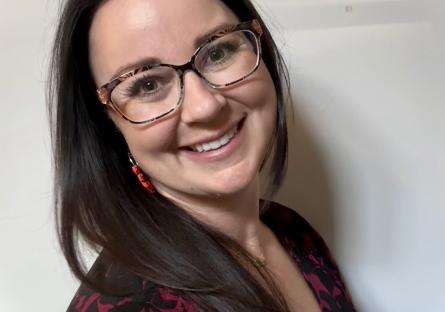
EMCC Math Professor Sharon Stefan

EMCC Psychology Professor Dr. Erica Wager
For two Estrella Mountain Community College (EMCC) professors, school will definitely not be out for summer; Math Professor Sharon Stefan and Psychology Professor Dr. Erica Wager will be in Mexico participating in a faculty curriculum development program just three days after the spring semester ends.
The Global Engagement Faculty Curriculum Development Program — a collaboration between the Maricopa County Community Colleges District and the University of Guanajuato — provides faculty throughout the District with a unique opportunity for professional growth and development to help expand the breadth of individual courses and curriculum.
For three weeks, the professors will immerse themselves in the country, spending the first week in Mexico City and the final two weeks with host families in Guanajuato. They will visit key cultural, archaeological, religious, and historical sites and engage with their peers from the University of Guanajuato.
Professor Stefan, who is also the Director of the STEM Center of Excellence at EMCC, has known about the opportunity for years, but didn’t apply until a colleague from Mesa shared her experience in the program.
“I thought the program was geared toward disciplines such as the humanities,” Professor Stefan said. “My colleague from Mesa, who teaches Geography, Environmental Science & Sustainability, said not many STEM faculty have applied in previous years, so I felt inspired to apply.”
Professor Stefan said she’s most excited to learn more about the contributions of Mesoamerican peoples such as the Olmec, Maya, Toltec, Aztecs, and Zapotec to mathematics and science.
Dr. Wager said she is looking forward to learning more about the experiences of Mexican and Mexican-American communities and deepening her understanding of translanguaging — the practice of using multiple languages to process and make sense of information.
“As a psychology instructor, I teach about executive function, neuroplasticity, and cognitive flexibility, and this experience will allow me to observe these cognitive processes in action,” Dr. Wager said. “By experiencing and studying translanguaging firsthand, I hope to develop a curriculum that affirms students’ multilingual strengths and treats those strengths as assets that students bring to the classroom.”
One of the requirements of the program is that participants use what they learn to internationalize their respective curricula and colleges and share the outcomes of their experience.
Dr. Wager plans to integrate new insights on bilingualism and cognitive flexibility into her biopsychology courses by incorporating case studies that illustrate how language switching shapes neural pathways.
“These case studies will not only enhance students’ understanding of psychology, but also encourage them to see bilingualism as a strength, even a superpower!” she said.
She also plans on leading workshops on culturally responsive teaching.
“Using my CREATE Education framework (Culturally Responsive, Empathetic, Action-oriented, Thoughtful and Empowering Education) from my dissertation, I’ll help faculty explore how to support bilingual and transnational students in their classrooms,” she said. “Additionally, I intend to join the newly formed Taskforce for Multilingual Learners to help develop resources for supporting students who navigate multiple languages and cultures.”
Professor Stefan plans to work with EMCC’s Center for Teaching and Learning to create a brown bag series aimed at STEM faculty to consider internationalizing the curriculum by using her experience in Mexico as a point of reference.
“Sharing my experiences in Mexico and my plans to infuse my curriculum with Mesoamerican culture would be of interest to History, Education, and STEM faculty,” she said.
She also plans on creating a module on Mayan and Aztec mathematics for her Math 256 class, which is a course for pre-service teachers.
“These future teachers can bring an activity into their classroom where students can see culture in the mathematics they are learning,” she said.